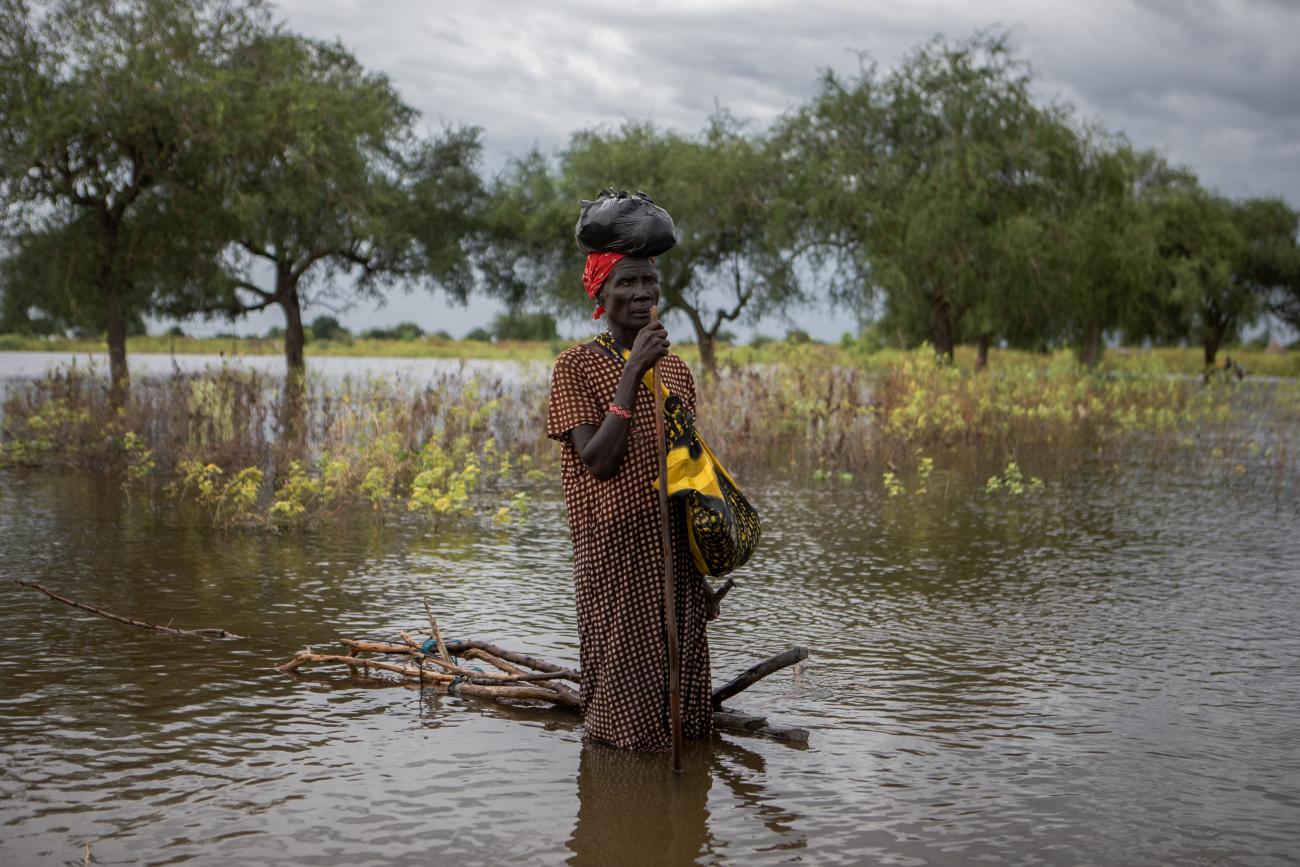Every year on 19 August, World Humanitarian Day (WHD), we commemorate humanitarian workers who work tirelessly to reach millions of crisis-affected people - women, men, boys, girls, older persons and persons with disability - with assistance and protection. We advocate for their well-being and dignity.
The UN Secretary-General refers to 2021 as the world’s ‘make-or-break year’, and he is calling for a ‘major breakthrough’ to slow the pace of climate change and build resilience to protect the most vulnerable people from increasingly severe and frequent climate impacts. We are joining his push to create a greener, safer, more resilient world.
This year’s World Humanitarian Day theme is - #TheHumanRace, a global race for climate action for people who need it most. South Sudan is ranked among the five countries in the world who is most vulnerable to the impacts of climate change. The country regularly experiences torrential rains, seasonal flooding and drought. The climate emergency impacts on the most vulnerable people. The effects of climate change are already visible as bouts of widespread and severe flooding affect people year on year. Last year, more than a million people were severely impacted by a second consecutive year of major flooding, with women and children most affected. For many people, their overall food security situation has worsened, and some communities were now facing catastrophic needs.
Climate change also contributes to livestock mortality and a decline in the amount and viability of land farmers can cultivate and reduced harvests. The traditional seasonal migration routes of pastoralists are affected by the changes to the climate and are further disrupted by and contribute to conflict. At times when searching for pasture and water for their livestock, pastoralists bring their herds into established farming communities leading to conflict over increasingly scarce resources.
Already vulnerable people of South Sudan are suffering from the direct and indirect effects of climate change—from flooding to violence derived by competition over limited resources. As humanitarian needs are growing, humanitarians work around the clock to address them, however, insecurity, violence, attacks against humanitarian personnel and assets, and looting of humanitarian supplies have significantly impacted a much-needed response to people.
Since March, there has been a rise in the number of attacks against aid workers, people serving the community, and assets across South Sudan. Recently, aid workers have been attacked and assets looted in a number of locations across the country. Every day, aid workers are risking their lives to provide assistance to the most in need in South Sudan. Four aid workers have been killed this year, bringing the number of aid workers killed since 2013 when conflict broke out to 128.
The trend of increased violence against communities, humanitarian organizations and assets cannot continue. We must be able to safely reach people in remote and highly food-insecure areas without the threat of attack. Time is already running out for millions of the most vulnerable people – those who have contributed least to the climate emergency but are hit the hardest. On WHD in South Sudan, we take the opportunity to highlight the vital work of all humanitarian workers and call on authorities to make every effort to protect communities, humanitarian personnel and assets across the country.
#WorldHumanitarianDay #NotATarget #TheHumanRace


















